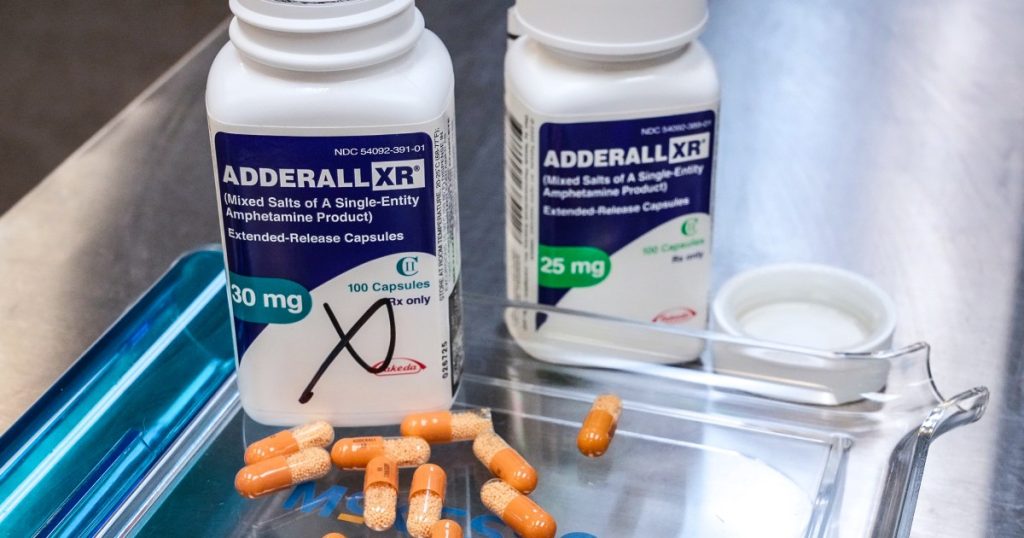ADHD medication shortages that have been affecting the U.S. for the past two years are starting to ease up, according to the Food and Drug Administration. While some improvement has been seen, doctors and patients are still encountering difficulties in getting prescriptions filled. The supply has improved for some medications, but many are still in short supply, leading to challenges for patients and healthcare providers. Manufacturers have managed to bring some ADHD medications back in stock, but the demand remains high, potentially straining the supply further.
About 6 million children and teens in the U.S. have been diagnosed with ADHD, making it one of the most common neurodevelopmental disorders in kids. Millions of adults also have ADHD, but may not be aware of it. Despite the improvements in supply, some patients continue to face challenges in accessing their medications. Patients like Kaja Moen, from North Carolina, have experienced difficulty in getting their prescriptions filled due to medication shortages, causing disruptions in their daily lives. Going without ADHD medications can greatly impact a patient’s ability to focus, concentrate, and function properly, making it important to address the ongoing supply issues promptly.
Dr. David Goodman, an expert in psychiatry, emphasizes that the lack of ADHD medications can severely compromise a patient’s performance in both personal and professional settings. Without proper medication, patients may struggle with impulsivity, restlessness, and have difficulty maintaining focus. The ongoing shortages have led to increased stress and uncertainty for patients who rely on these medications to manage their symptoms. While supply is slowly improving, there are still challenges faced by patients and healthcare providers in ensuring the availability of medication for those who need it.
Dr. Royce Lee, a psychiatrist at the University of Chicago Medicine, notes that despite some signs of improvement, there are still issues with medication shortages. Healthcare providers like Dr. Lee have to put in extra effort to ensure that patients receive their medications, which can involve calling multiple pharmacies, switching to alternative drugs, and navigating insurance coverage issues. As manufacturers work to address the high demand for ADHD medications, patients are encouraged to maintain open communication with their healthcare providers and pharmacists to stay informed about medication availability and potential alternatives.
In response to the ongoing shortages, healthcare institutions like the University of Chicago Medicine have implemented strategies to help patients navigate the challenges of obtaining their prescriptions. Having a dedicated pharmacist to troubleshoot medication issues and keep track of stock levels has been beneficial in ensuring that patients receive the medications they need. Dr. Michael Kane, a child and adolescent psychiatrist, also emphasizes the importance of proactive communication between patients and pharmacies to anticipate and address medication shortages before they become urgent. While the situation has improved, there is still variability in medication availability that patients may encounter.
Overall, while there have been signs of improvement in addressing the ADHD medication shortages in the U.S., challenges persist for patients and healthcare providers. The high demand for these medications continues to strain the supply chain, leading to ongoing difficulties in accessing medications for individuals with ADHD. Patients are encouraged to stay in close contact with their healthcare providers and pharmacists to stay informed about medication availability and potential alternatives. Continued efforts are needed to ensure that adequate supplies of ADHD medications are maintained to support the health and well-being of individuals with ADHD.


